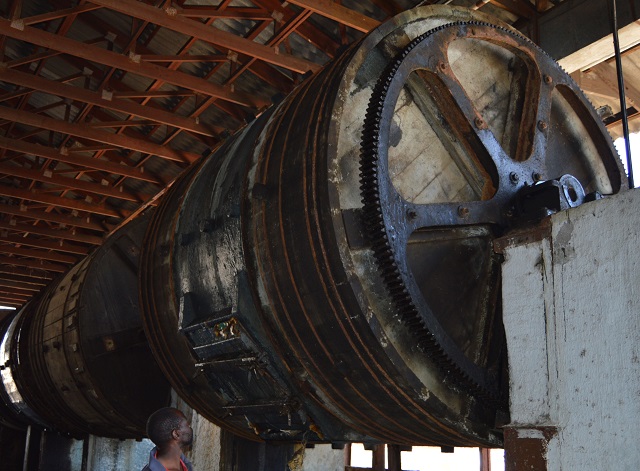
The Sunday News

 Leather liming and tannery drums at Wet Blue Leather Tanning Industries at Donnington Industrial area at work
Leather liming and tannery drums at Wet Blue Leather Tanning Industries at Donnington Industrial area at workDumisani Nsingo, Senior Business Reporter
@DNsingo
ONE of the country’s biggest tanneries, Wet Blue Industries is set to sign a major joint venture deal with a local leather products processor which will see the Bulawayo-based company getting into full production after five years under care and maintenance.
Wet Blue Industries judicial manager Mr Crispen Mwete said the deal was now awaiting signatures of the directors.
“We have a deal which is on the pipeline which will see the company going into a joint venture with a value addition firm. We have already drawn the contract and on our part we have signed and we are only waiting for our partner to do so and we expect the arrangement to be finalised soon,” said Mr Mwete.
He, however, could not be drawn into divulging the name of the company, saying this could jeopardise the process.
“At the moment we are only waiting for shipment of chemicals which we ordered from South Africa and they are already on the way. The hides are available and CSC (Cold Storage Company) said it will avail its hides to us.
“We are also made to believe that there are certain individuals with 20 000 hides who want us to have them processed and then they take them to their own market. Bulawayo Abattoirs have also come on board,” said Mr Mwete.
Bulawayo Abattoirs owner, Mr Samuel Brenner said the company was processing its hides at Wet Blue Industries but could not be drawn into divulging its latest negotiations with the tannery.
“We took our hides to Wet Blue Industries a year or so ago (and) that’s when we had them blued there but at the moment we are not yet looking forward to that,” he said.
Bulawayo Abattoirs, which is a subsidiary of Grills Group of Companies was named the Zimbabwe National Chamber of Commerce (ZNCC) 2013 Exporter of the Year in the agriculture sector after exporting more than 1 000 tonnes of bovine hides to South Africa, China and Italy.
It had exported 48 000 bovine hides, about 1 060 tonnes while last year it exported 72 000 bovine hides approximately 1 600 tonnes.
Wet Blue Industries was placed under provisional judicial management in September 2014 after business went down following shortage of inputs after the major supplier, CSC started experiencing problems. This led to the closure of the company in 2011.
It owes its creditors about $1,5 million with its biggest creditor being its workforce which it owes over $250 000 in salary arrears.
At its peak, the tannery used to process
1 200 hides a day using 18 tannery drums and employed over 230 workers.
However, its employment figures has dropped to 50, while it is using 11 tannery drums with a capacity of processing 670 hides a day. The remaining seven tannery drums need maintenance.
“We have taken a two-pronged approach where we will be processing our own hides for our clients as well as processing those from other clients. The last time we stopped operations it was because we were dependent or relying on processing those that were brought to us by clients and thus we want to guard against that,” said Mr Mwete.
Zimbabwe currently has eight tanneries operating at capacities of between 20 and 50 percent. Footwear manufacturing companies are 49 and have operational capacities of 25 to 40.
Over the past 20 years, more and more players in the leather sector have been emerging mainly as Small to Medium Enterprises (SMEs).
However, experts have said there was need for the SMEs to be encouraged to participate in the sector’s activities and meetings so that they too can be aware of developments in the sector and also be in a position to work well with the already established companies. The leather sector has suffered great losses over the years.
Once a vibrant sector, the leather sector is facing numerous challenges, which are making it difficult for the companies to remain operational and competitive. The sector employs around 3 000 from a peak of 12 000 people in the 1990s.
The farmers, suppliers of the cowhides and skins are also failing to maintain their herd due to what they believe is the low price the beasts are fetching on the market. This has led to the shortage of the raw material as well as its low quality.



